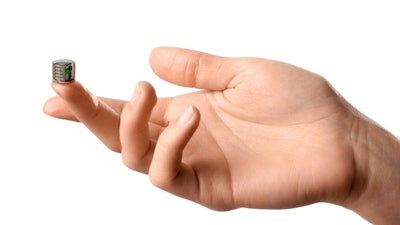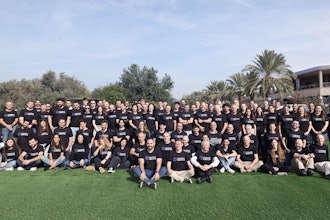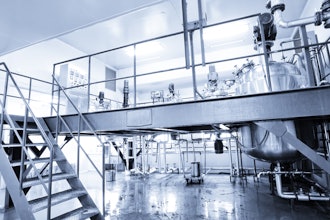
Motif Neurotech, a neurotechnology company developing minimally invasive bioelectronics for mental health, announced today new research published to the preprint server medrxiv that demonstrates a millimeter-sized brain stimulator in a human subject.
The study was a collaboration with researchers at Rice University, Baylor College of Medicine, and UTHealth Houston. The procedure took place at Baylor St Luke’s Medical Center. In intraoperative studies, the team showed that their miniature implants could safely and effectively stimulate the human brain without contacting the brain surface. They further showed their implants provided safe and effective brain stimulation in large animal studies lasting over 30 days.
Motif is developing a miniature brain pacemaker that is designed to precisely stimulate the brain to restore healthy circuit activity to treat mental health disorders. Insertable in a 20-minute out-patient procedure, the pea-sized implant is designed to deliver at-home therapy and should have minimal side effects compared to drugs. The company’s lead product is for treatment-resistant depression (TRD), a form of major depressive disorder (MDD).
Up to a third of individuals diagnosed with MDD – approximately 2.8 million Americans each year – do not respond even after trying two or more different antidepressant drugs, resulting in TRD or difficult-to-treat depression. With each failed treatment, the chance of experiencing a decrease in symptoms drops. By the fourth failed treatment, as many as 83% of patients will relapse. TRD costs the healthcare system a total annual burden of $43.8 billion.
“We’ve developed what we believe is the smallest implantable brain stimulator demonstrated in a human subject. Our wireless, battery-free device will enable a minimally-invasive neurostimulation solution to treat neuropsychiatric diseases such as TRD. With our technology, a short outpatient procedure will enable long-lasting therapy with very few side effects compared to drugs,” said Jacob Robinson, Ph.D., CEO & Founder, Motif Neurotech. “The growing trend of increasing efficacy and reduced invasiveness may soon make neuromodulation to treat mental health as common as pacemakers in cardiology.”
Traditional neuromodulation systems have limitations due to their reliance on implantable pulse generators with built-in batteries and wired leads, leading to various potential points of failure such as lead fractures, migration, and battery failure. Current clinical literature shows stimulation of the prefrontal cortex is effective for TRD without the side effects of antidepressant drugs. Existing brain stimulation treatments like TMS are expensive and challenging to access, with daily treatments required for six weeks and high rates of relapse following treatment.
Motif is developing a neuromodulation system consisting of a precisely targeted implant and wearable headset for use at home to deliver episodic neuromodulation. This type of episodic neuromodulation has been shown to be effective for treating TRD.






















